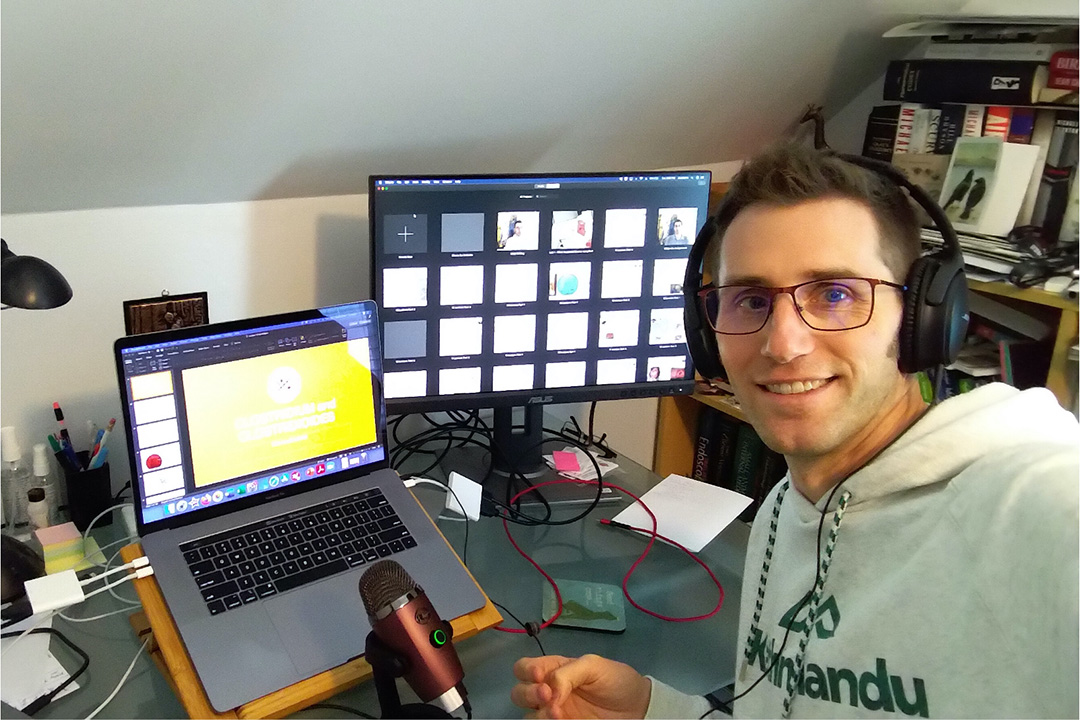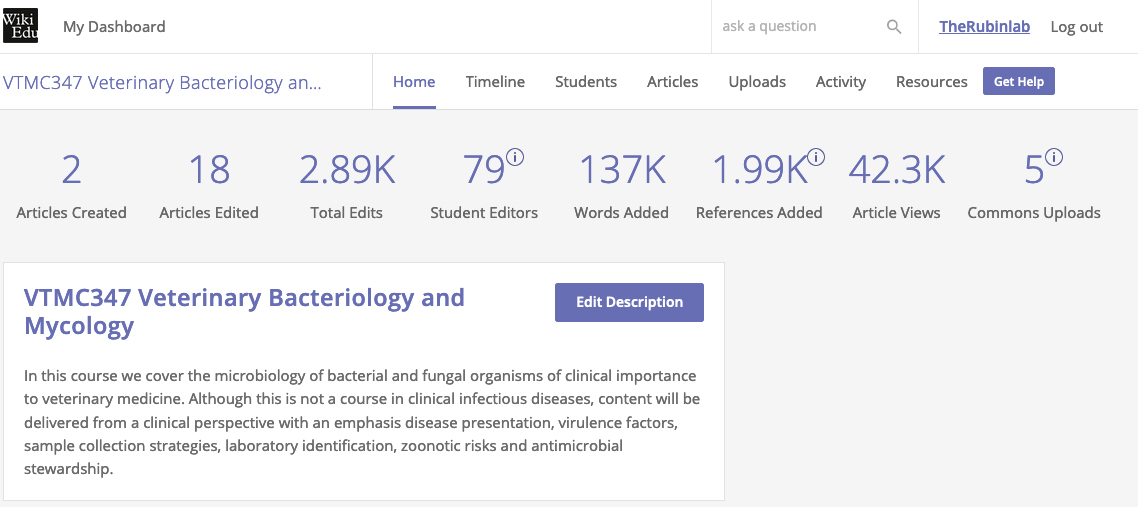
Writing for Wikipedia enriches students' skills
As universities around the world adapted to COVID-19 restrictions for in-person learning and professors looked for ways to deliver their courses’ content, creativity was key for Dr. Joe Rubin (DVM, PhD).
By Katie Brickman-YoungRubin, an associate professor in the Western College of Veterinary Medicine’s (WCVM) Department of Veterinary Microbiology at the University of Saskatchewan (USask), spent a few months this summer trying to figure out how to get across the key skills and engage students in his second-year veterinary bacteriology and mycology class.
“In some ways, the class was very similar,” he says. “We still had the same basic structure of the course that I’ve had in the past, but the course generally has an in-person lab component. The lab was something that had to be done very differently since we weren’t meeting in person.”
Rubin spent many hours figuring out video editing software and creating a number of videos for the lab.
“This is such a stressful time for everyone,” said Rubin. “I was going into the year trying to think of strategies for ways to structure the course differently to reduce the number of high-stakes assessments the students had.”
One of his ideas was a Wikipedia assignment requiring students to write sections on Wikipedia pages of specific bacteria that are part of the college’s Doctor of Veterinary Medicine (DVM) curriculum.
“The students worked in groups where they had a set of articles that I pre-selected for them,” said Rubin. “I selected these specific organisms because I talk about them in class and there was a deficiency of information on the Wikipedia pages.”

The learning experience throughout the course and semester had its highs and lows. The user-experience of the Wikipedia platform had some technical frustrations, but Xiao Ma enjoyed the assignment.
“We couldn’t use language that was too technical when writing the article because the audience was the general public. I think it was good practice because as veterinarians, we need to be able to communicate with our clients,” says Ma, a second-year WCVM student. “With this assignment, we got to practise those skills, which was a helpful experience.”
Ma and her group worked on the page for Neorickettsia risticii, which can cause a series equine illness called Potomac horse fever. Some other selected pages included Staphylococcus schleiferi, a pathogen that often affects household pets, and Taylorella equigenitalis, a bacterium that causes disease in horses.
Throughout the semester, students worked independently on their sections and then worked in groups to edit the new information. Through this assignment, Rubin wanted his students to hone their research skills—to practise digging through the scientific literature and evaluating each research publication. The project also pushed the students to find high-quality evidence and to potentially compare it with conflicting pieces of information—an important skill for future practicing veterinarians to develop.
“The science communication component was absolutely critical — taking complex language and distilling it into something the general public could understand was the goal,” says Rubin. “In bacteriology, it is important that students understand how the tests we do in a diagnostic lab actually work because interpreting a test and coming up with a diagnosis that fits the clinical context of the patient is key.”
The WCVM students contributed a total of 137,000 words to the new sections and since uploading their content to their Wikipedia pages in December 2020, users have viewed the student-written articles more than 42,000 times.
“Wikipedia is a top-accessed webpage and it is an important resource to the general population,” says Rubin. “In middle-or-low-income countries Wikipedia may play an even more important role including the education of post-secondary students who have inadequately resourced libraries.
“I think the words our students added to these articles will go a long way to hopefully improving the scientific literacy of the community.”
